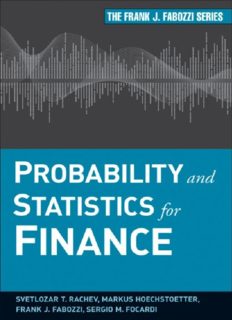The Freelancer's Tale: How Novels Explore the Gig Economy
The rise of the gig economy has transformed the way people work, offering flexibility and independence while also introducing new forms of instability and uncertainty. This shift is increasingly reflected in modern literature, where stories of freelancers, independent contractors, and gig workers offer fresh perspectives on the nature of work.
Through fictional narratives, authors capture both the allure and the challenges of non-traditional career paths, painting a vivid picture of modern-day hustling. In this blog post, we explore how novels portray the gig economy, highlighting the themes of independence, uncertainty, and the quest for balance.
Freedom and Flexibility: The Allure of the Gig Economy
One of the most attractive aspects of freelance work is the freedom to choose projects, set schedules, and pursue passions. In The Goldfinch by Donna Tartt, protagonist Theo Decker navigates his life in New York City through a series of unpredictable gigs that reflect his fractured state of mind. His work is unstructured and fluid, much like the gig economy itself—an existence defined by self-reliance and adaptation.
Similarly, Sweetbitter by Stephanie Danler explores the life of a young woman working in New York City's vibrant restaurant industry. Her transient job as a waitress captures the essence of gig work—intense, uncertain, yet filled with moments of self-discovery and freedom. The novel paints gig work as both a means of survival and a gateway to experience.
The Cost of Independence: Insecurity and Instability
While the gig economy promises freedom, it often comes at the cost of stability and security. In Down and Out in Paris and London by George Orwell, Orwell himself recounts his life working low-paying, unstable jobs in the restaurant industry. His vivid descriptions of poverty and labor struggles underscore the harsh realities of living gig-to-gig without the safety net of traditional employment.
Similarly, Nomadland by Jessica Bruder explores the lives of older Americans who turn to seasonal and gig work after economic collapse. Through immersive storytelling, Bruder illustrates the vulnerabilities faced by gig workers who lack long-term security, healthcare, and financial stability.
Navigating a Shifting Landscape
The unpredictability of the gig economy is often portrayed in literature as a reflection of broader societal shifts. In The Beautiful and Damned by F. Scott Fitzgerald, the pursuit of wealth and status through fleeting opportunities mirrors the modern-day gig worker’s quest for financial success amidst economic uncertainty.
Another compelling portrayal is found in Temporary by Hilary Leichter, a surreal exploration of gig work taken to the extreme. The protagonist navigates a bizarre series of temp jobs, each more outlandish than the last, symbolizing the disconnection and absurdity that can accompany temporary labor.
Literary Lessons from the Gig Economy
Fictional depictions of freelancers and gig workers provide insightful commentary on the nature of work in modern society:
Adaptability is Key: Characters like Theo Decker and the protagonist in Temporary highlight the need for flexibility and resilience in non-traditional work.
Independence Comes with Sacrifice: The freedom of gig work often includes instability and a lack of long-term security, as shown in Down and Out in Paris and London.
Community is Crucial: In Nomadland, gig workers form tight-knit communities, illustrating the importance of support networks in unstable work environments.
Self-Definition Through Work: Many characters in gig-based narratives use their work experiences as a path to self-discovery and growth.
Final Thoughts
The freelancer's tale, as depicted in literature, is a testament to the evolving nature of work. Through novels that explore the highs and lows of the gig economy, readers are offered a window into the lives of those who trade stability for freedom, embracing both the risks and rewards of independent work. As the gig economy continues to expand, its literary representation serves as both a reflection and a critique of modern labor trends.








